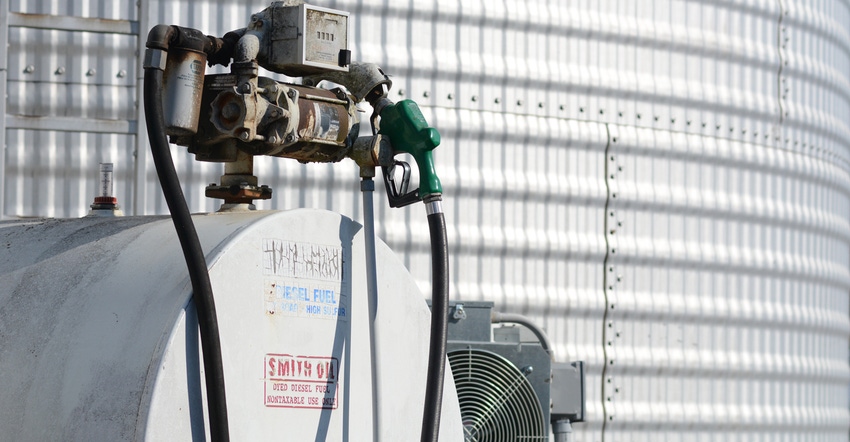March 30, 2020

In the South, planters are rolling, and in the Midwest farmers wait for soils to dry out and warm up so they can hit the field. The question? Will there be enough diesel to get that crop in the field? The short answer is “yes,” but the background behind the answer will be more complicated as the season progresses.
“I think if you divide this fuel situation up into segments … at a high level it appears like we’re destroying gasoline demand by the day,” says Tim Abel, manager, supply and trading, refined fuels, Growmark. “There is an offset to some of that with increased diesel demand, or fairly steady demand.
When viewing the fuel supply, it’s important to realize that when that barrel of crude arrives at the refinery, it can be broken into many products — including diesel, gasoline, Jet-A, kerosene, lubrication oil and more. All these products are impacted by that crude oil price; the price has been sent into a tailspin, in part, because of an oil spat between Russia and Saudi Arabia while COVID-19 piles on like a big wrestler in a cage match.
For farmers looking to plant, there’s good news on two fronts. First, it appears there’s enough supply on hand for diesel use. Second, the price is probably as low as it has been in years. “When is the last time that we’ve seen these prices?” asks Jason Schwantz, senior vice president of refined fuels, CHS. “It’s a boon for the American farmer, and this is a buying opportunity right in the sweet spot for the season.”
Serving the market
Growmark is a regional cooperative that supports its FS member-cooperatives and works with several refineries to supply their needs. CHS owns two refineries — one in Laurel, Mont., the other in McPherson, Kan. — that support distillate needs for member-cooperatives. Both are seeing rising demand for diesel and declines for gasoline.
Schwantz notes that the slowdown in gasoline use in the country may be slower than in rural areas. “We may be more insulated since we’re so rural-based. Many of our customers can’t get on a computer and do their work — they have to get out there — and they’re traveling,” he observes.
The COVID-19 situation is constantly in flux, which creates uncertainty for longer-term supply. What if employees at a terminal get sick? Could a refinery slow down or stop due to the illness? Given that energy is considered an “essential industry” by the U.S. Department of Homeland Security, there’s some benefit.
Schwantz notes that CHS has implemented programs to keep workers safe, but also to keep the refineries running and move product to terminals for local cooperatives. “If someone does get sick and leave work, we can move someone into that position to keep things moving,” he says.
Yet Abel says being deemed essential doesn’t help if a business isn’t making money. “Energy is an essential service, but you still have to look at it from an economic standpoint,” he says.
If a business is making money on diesel but losing ground on gasoline or other products, that can be problematic for the long term. Abel notes that in Europe and Asia that refineries have shut down or curtailed output, which could happen here in the coming weeks.
Questions ahead
And there other refining questions facing the industry. For example, the decline in air travel means there’s plenty of jet fuel in the system. It’s possible this could be blended into low-sulfur diesel, but that has yet to be determined. And there are concerns about the switch from winter- to summer-blended gasoline. Will states allow waivers to use up the “winter” supply; and if not, what happens then?
For now, for farmers the news is good. Abel notes that if we were going into harvest with the potential for supply hiccups, that could be worse — farmers use more diesel then. For spring, the situation is stable.
Perhaps topping off those farm fuel tanks with the lower-priced diesel makes sense. Where prices and supplies go later in the season remains to be seen. For now, refiners are keeping up even as distillate demand changes.
Adds Schwantz: “Distillate demand is great, trucking is great with the mad rush to stores — which is creating more demand on the diesel side. We’re in a position to handle that demand.”
About the Author(s)
You May Also Like






